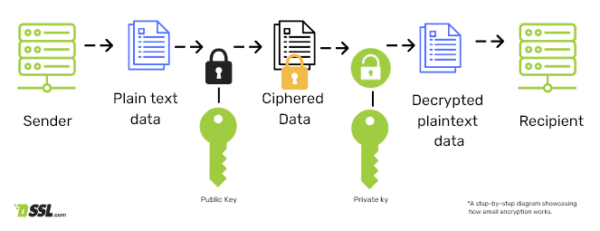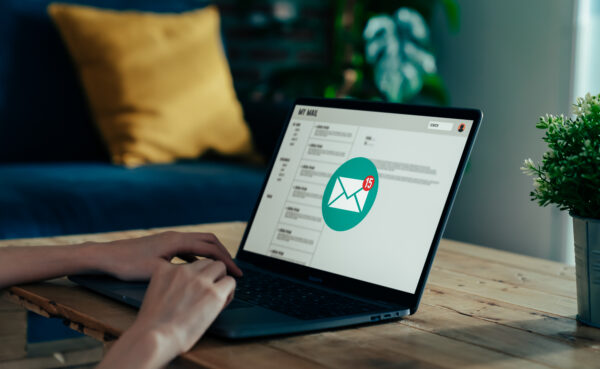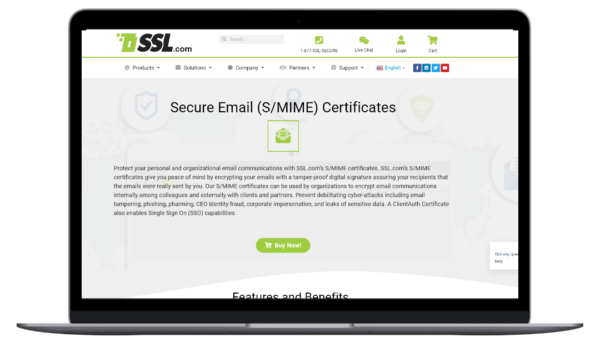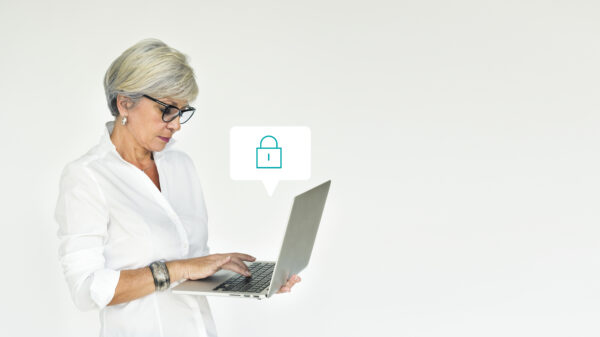We’re constantly bombarded with news about data breaches and cyber attacks. It’s like walking through a minefield, never knowing when you might step on a hidden threat. Now, imagine receiving an email notification about unauthorized access to your account, or worse, realizing you’ve fallen victim to a data breach. It’s like stepping on that hidden mine. The evolving world of cybersecurity threats is real and terrifying, just like that minefield. It’s clear that traditional email communications are vulnerable, like an open field with no cover. This predicament makes the case for an urgent shift to secure email communication – a role fulfilled by email encryption. It’s like building a protective bunker in the middle of the minefield.

But why should you go through the trouble of creating a secret handshake? Beyond preventing a potential breach, email encryption provides confidentiality, integrity, and authenticity. This ensures that only intended recipients can access the content, the content remains unaltered during transmission, and the sender’s identity is verified, respectively. It’s like having a secret club where only members know the password, the club rules are always followed, and everyone knows each other’s true identity. But why should you go through the trouble of creating a secret handshake? Email encryption is crucial for several reasons:
 To illustrate the importance of email encryption, let’s look at some examples. A financial institution, for instance, shares sensitive transactions via email regularly. Without encryption, a cybercriminal could intercept these communications, leading to severe financial fraud. It’s like leaving your bank account details on a public bulletin board. Similarly, a healthcare provider sending patient records via email without encryption could face a significant privacy breach. It’s like broadcasting a patient’s medical history on a public radio station.
To illustrate the importance of email encryption, let’s look at some examples. A financial institution, for instance, shares sensitive transactions via email regularly. Without encryption, a cybercriminal could intercept these communications, leading to severe financial fraud. It’s like leaving your bank account details on a public bulletin board. Similarly, a healthcare provider sending patient records via email without encryption could face a significant privacy breach. It’s like broadcasting a patient’s medical history on a public radio station.
 So, how can you create this secret handshake for your emails? SSL.com’s S/MIME certificates offer a solution for email encryption. Its advanced features ensure your emails are secure, providing peace of mind for your digital communications. It’s like having a secret handshake that’s so complex, only you and your intended recipient can perform it correctly.
So, how can you create this secret handshake for your emails? SSL.com’s S/MIME certificates offer a solution for email encryption. Its advanced features ensure your emails are secure, providing peace of mind for your digital communications. It’s like having a secret handshake that’s so complex, only you and your intended recipient can perform it correctly.
So, How Email Encryption Works?
So, how can you build this protective bunker? The answer lies in email encryption. It’s like a secret code that only you and your intended recipient know. It transforms the data in your emails into unreadable text for anyone without the correct decryption key, which means only your intended recipient can read your email. This is akin to sending a sealed letter instead of an open postcard. It’s like having a secret handshake that only you and your friend know. Anyone else who tries to mimic the handshake will fail, just like anyone who tries to read your encrypted email without the decryption key.
Understanding the Benefits of Email Encryption
- Malicious Email Attachments. Harmful scripts can be delivered as attachments that execute right on your computer when you open them. Email signing certificates are extremely useful in verifying the sender’s identity so you can be assured that the message is from a trusted source.
- Spoofing. Cybercriminals can fake a return address on an email to make it look as though the message came from a trusted account. Email signing certificates can be used to prevent this type of attack by ensuring that every employee within your organization is signing their emails to indicate trust.
- Eavesdropping. Cyber attackers can intercept the data between your computer and the receiver’s. With encrypted email communication, the information can’t be read by anyone unless they have the private key.
- Spamming and Phishing. Unsolicited spam mails from advertisers are simply junk mails that clutter your mailbox. However, phishing emails pose a serious security threat. They often imitate legitimate entities with the intention of stealing your private information like banking details and credentials. Encryption adds a layer of protection against these threats.
- Data Breaches. In cases of data breaches, cybercriminals can gain unauthorized access to your email content. Encrypted emails make it significantly harder for such breaches to occur, as the data is unreadable without the decryption key.
- Identity Theft. When personal information is stolen, it can be used to commit fraud or other crimes in your name. Encrypting emails helps to protect your personal information from being stolen and used for identity theft.
Communicate securely and protect your email communications with S/MIME certificates from SSL.com. Safeguard sensitive information, authenticate sender identity, and ensure privacy. Take control of your email security now!
Use Cases and Examples Email Encryption
 To illustrate the importance of email encryption, let’s look at some examples. A financial institution, for instance, shares sensitive transactions via email regularly. Without encryption, a cybercriminal could intercept these communications, leading to severe financial fraud. It’s like leaving your bank account details on a public bulletin board. Similarly, a healthcare provider sending patient records via email without encryption could face a significant privacy breach. It’s like broadcasting a patient’s medical history on a public radio station.
To illustrate the importance of email encryption, let’s look at some examples. A financial institution, for instance, shares sensitive transactions via email regularly. Without encryption, a cybercriminal could intercept these communications, leading to severe financial fraud. It’s like leaving your bank account details on a public bulletin board. Similarly, a healthcare provider sending patient records via email without encryption could face a significant privacy breach. It’s like broadcasting a patient’s medical history on a public radio station.
Introducing SSL.com’s S/MIME Certificates
 So, how can you create this secret handshake for your emails? SSL.com’s S/MIME certificates offer a solution for email encryption. Its advanced features ensure your emails are secure, providing peace of mind for your digital communications. It’s like having a secret handshake that’s so complex, only you and your intended recipient can perform it correctly.
So, how can you create this secret handshake for your emails? SSL.com’s S/MIME certificates offer a solution for email encryption. Its advanced features ensure your emails are secure, providing peace of mind for your digital communications. It’s like having a secret handshake that’s so complex, only you and your intended recipient can perform it correctly.
Why Choose SSL.com’s S/MIME Certificates for Email Encryption?
But why should you choose SSL.com’s S/MIME certificates for your secret handshake? Besides its compatibility with major email client software applications and email services, SSL.com’s S/MIME certificates excel in their user-friendly interface. This makes secure email communication accessible to everyone, no matter their level of technical skills. Additionally, they provide industry-grade encryption and client authentication capability, ensuring that only verified individuals or organizations can access your systems. It’s like having a secret handshake that’s easy to learn but impossible to crack.Communicate securely and protect your email communications with S/MIME certificates from SSL.com. Safeguard sensitive information, authenticate sender identity, and ensure privacy. Take control of your email security now!
FAQs about SSL.com’s S/MIME certificates
Now, you might have questions about email encryption and our S/MIME certificates. That’s why we’ve prepared a handy FAQ section to answer some common queries.What are our S/MIME certificates?
Our S/MIME certificates are digital certificates that provide a robust solution for email encryption. They ensure your emails are secure, providing peace of mind for your digital communications.
Why should you choose our S/MIME certificates for email encryption?
Our S/MIME certificates are compatible with major email client software applications and services. They offer industry-grade encryption and client authentication capability, ensuring that only verified individuals or organizations can access your systems. With a user-friendly interface, secure email communication becomes accessible to everyone, regardless of their technical skills.
How do our S/MIME certificates work?
Our S/MIME certificates work by encrypting the data in your emails, transforming it into unreadable text for anyone without the correct decryption key. This means only your intended recipient can read your email.
What types of S/MIME certificates do we offer?
We offer various types of S/MIME certificates, including Basic Email S/MIME Certificate, Individual Validation (IV) S/MIME Certificate, Organization Validation (OV) S/MIME Certificate, and Individual Validation + Organization Validation (IV + OV) S/MIME Certificate. Each certificate serves different needs and provides varying levels of security and validation.
How quickly can you get an S/MIME certificate from us?
The issuance of our S/MIME certificates occurs within seconds of successful validation. Once installed, you can securely send and receive encrypted email.
Do we offer bulk issuances of S/MIME certificates?
Yes, we offer a bulk ordering option for Basic S/MIME Certificates.
What if you need a custom solution or high-volume S/MIME certificate issuances?
If you require signing options tailored to your specific organization or need high-volume S/MIME certificate issuances, you can contact us directly for custom solutions.
How do our S/MIME certificates protect against cyber threats?
Our S/MIME certificates serve as your front line defense against identity-based email cyber attacks. They display a signed email notification to recipients, preventing phishing, pharming, and Business Email Compromise (BEC) attacks. This ensures the protection of your personal and organizational email communications.
What is the Client Authentication Capability of our S/MIME Certificates?
Our S/MIME Certificates also offer client authentication capability for accessing critical systems. The clientAuth feature effectively shields sensitive data and digital assets from malicious actors by ensuring that only verified individuals or organizations can log in to systems.



